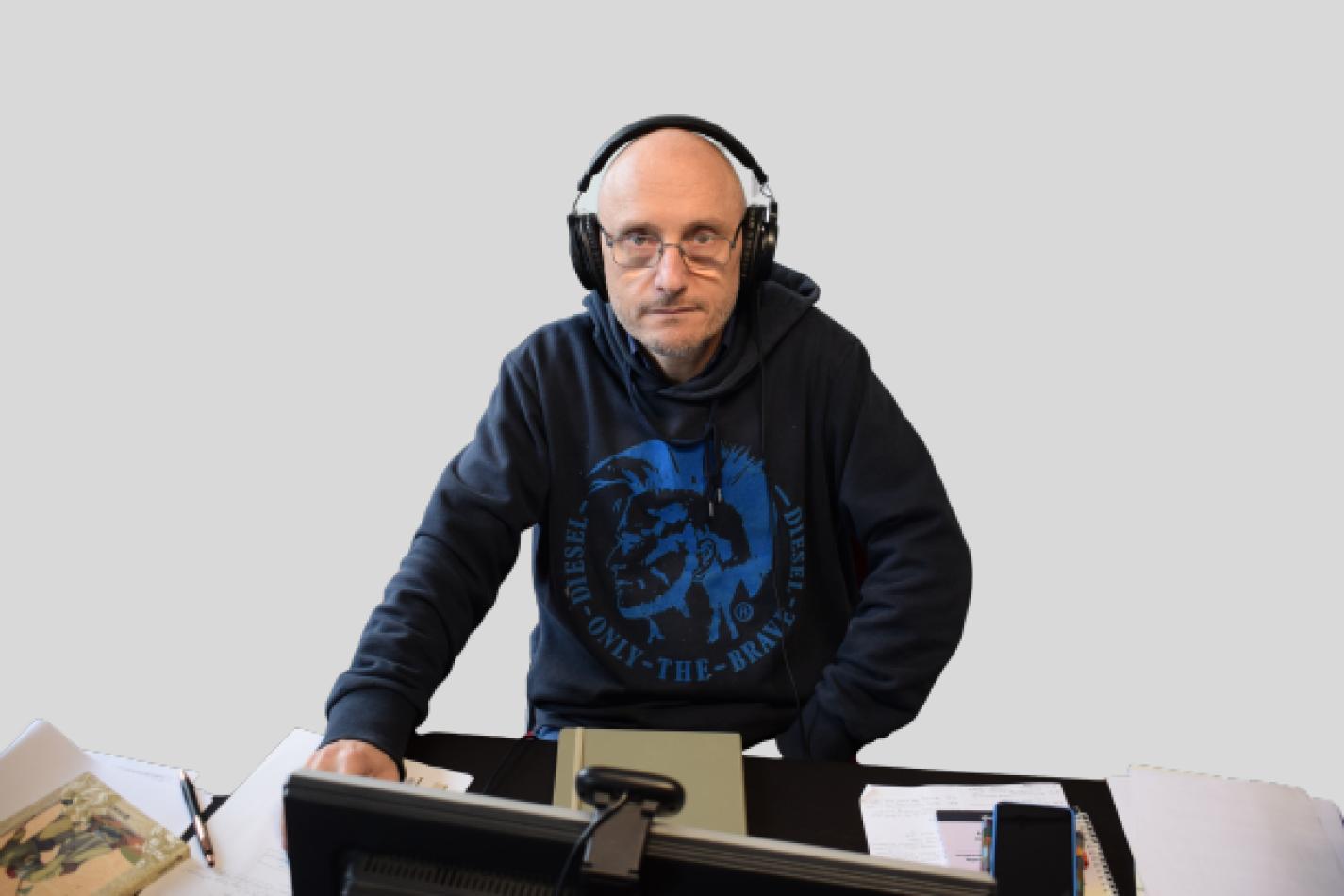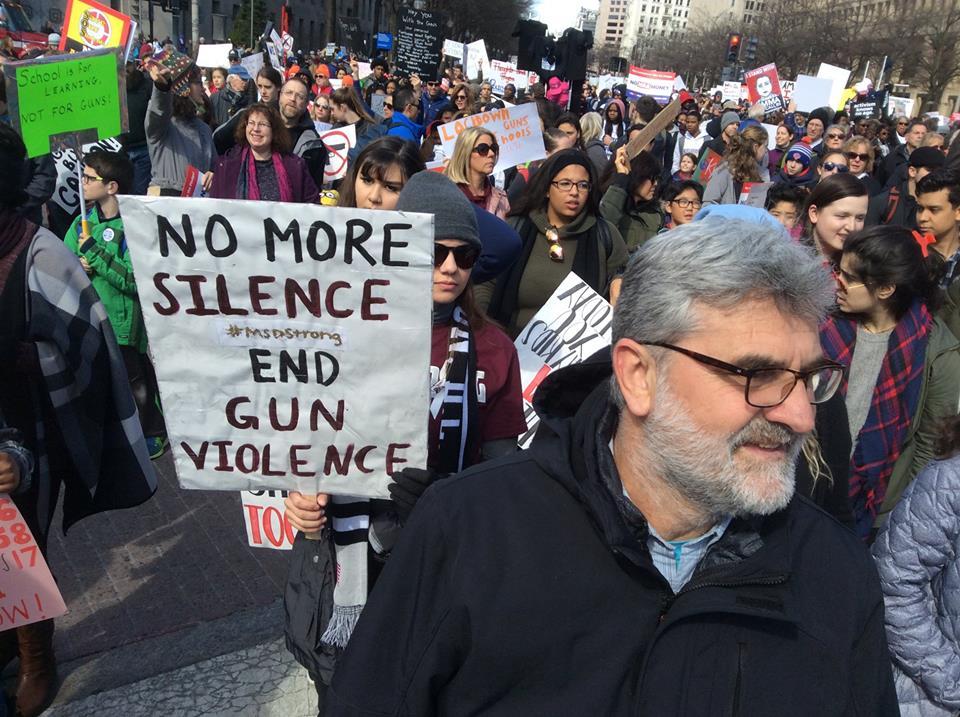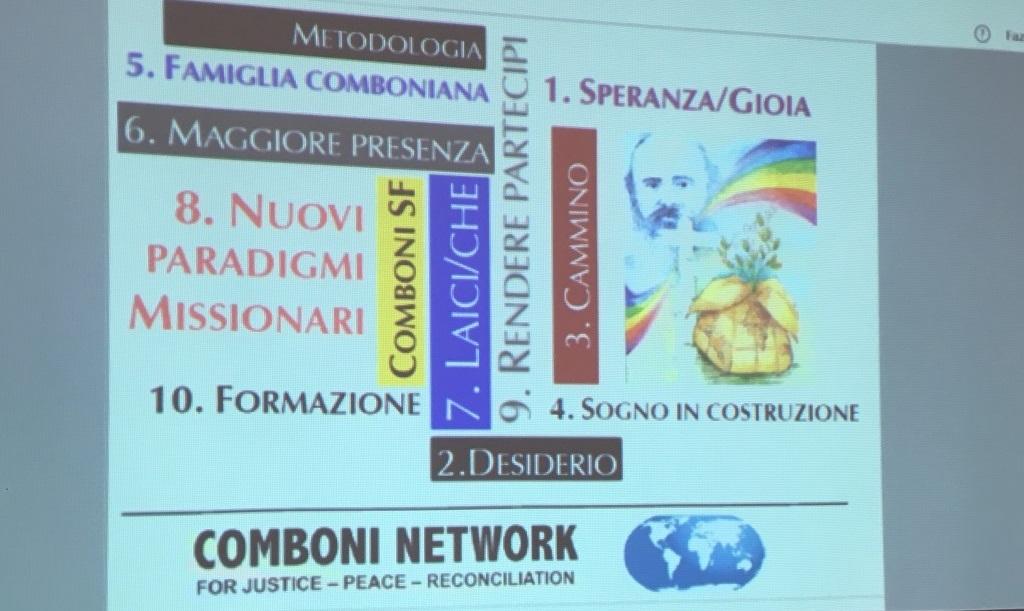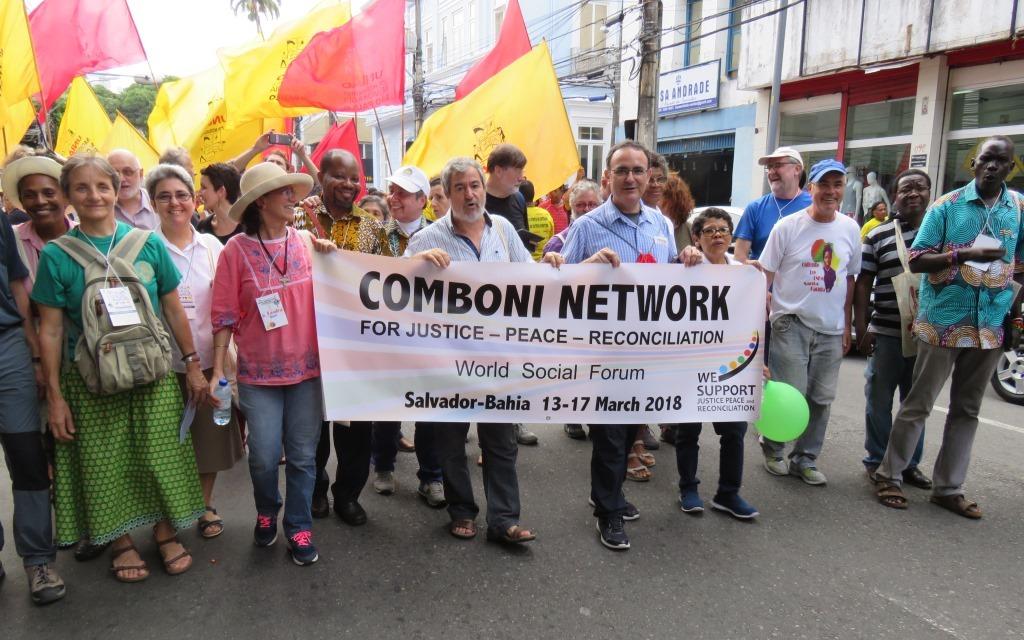Daniele Comboni
Missionari Comboniani
Area istituzionale
Altri link
Newsletter
Saturday, December 16, 2023
Dear Friends, I am delighted to take this opportunity to introduce myself. I am Br. Alberto Parise, a Comboni Missionary from Italy, just appointed as President of the Executive Committee of AEFJN. I have had the honour of serving in the Executive since 2020, in which I contributed also as Vice President since 2021. [AEFJN]
Justice, Peace and Integrity of Creation (JPIC) has been at the centre of my missionary ministry since my very first appointment to Kenya, initially in a mission at the periphery of Nairobi, in the sprawling informal settlements, and as JPIC Coordinator of the Comboni Missionaries in Kenya; then as director of the Institute of Social Ministry (today Institute for Social Transformation) at Tangaza University College (The Catholic University of Eastern Africa). That experience in Africa has given me exposure, insight and motivation to contribute to the promotion of economic justice, in the light of the Gospel and of the social teaching of the Church. Currently, I am working in the General Secretariat of Mission of the Comboni Missionaries in Rome, in which I also serve as JPIC Coordinator, and this is what brought me to have a more active role in AEFJN.
In the Annual General Meeting of AEFJN held last October, the assembly approved the new Action Plan 2024-2028. The theme of “land” is at the centre of our strategic planning, in line with the history of our network and with the signs of our time. The economy of Africa is largely agrarian and for the 60% who depend on agriculture for their livelihoods, land is not a commodity to be disposed of; it is a gift from God and the ancestors. Land is the sacred base of their lives, providing timber and stone for building homes, firewood for cooking, clay for cooking pots, grass for livestock, food to nourish families, and sacred plants for rituals and medicines. Land cradles their rivers and streams and stores the water that replenishes their wells. For Africans, land determines their identity as human beings, their dignity, their sense of belonging, reflected in cultural rituals such as the burying the new-born’s umbilical cord on the family’s ancestral land, a symbolic act of ongoing life and our unbreakable connection with the earth, hence Our Land is Our Life is the name of the flagship project of the International Secretariat in Brussels.
Demographic trends, mass migration, urbanisation and economic growth have combined with climate change related land and soil degradation to increase pressure on the land. Meanwhile, neo-liberal policies have endeavoured to commodify land and natural resources as tradable assets. Wider macro-economic trends have made land in Africa an attractive proposition to global investors, both as an investment asset and to exploit the growing demand for food, feed, and bioenergy. This has triggered a huge surge in large-scale land acquisitions that have displaced millions of rural Africans from their homes, farms, forests, and grazing lands.
The new wave of land grabs has been associated with massive land degradation, loss of biodiversity, and multiple human rights abuses, with thousands of communities forcibly evicted without legal recourse or compensation. Women are particularly vulnerable due to their weaker status in land governance systems and as land titles tend to pass from father to son. Those vulnerable too are the environmental, land and indigenous human rights defenders, whose lives are at risk from threats, criminalisation and even death. Against such a backdrop, AEFJN is going to concentrate on two major, broad issues, namely, land rights and food sovereignty, and corporate social responsibility.
Access to land is a pre-condition for food sovereignty, therefore land rights become critical especially to women who form the bulk of small holder farmers in Africa and produce 70% of the food consumed in Africa. Even though there is a growing consciousness in the European Union that European consumption is putting pressure on land outside Europe especially Africa, the pressure on African land by EU transnational corporations (TNCs) is going on unabated, with its heavy socio-economic consequences on Africa. The results are unending communal clashes over parcels of land between communities, and between herders and farmers. Furthermore, the industrial agriculture being encouraged in Africa is contributing immensely to deforestation, loss of biodiversity, destruction of the ecosystem, climate change, loss of Africa’s food systems and food cultures and the systematic erosion of African identity. The struggle against these socio-economic injustices for Africa will guide AEFJN advocacy engagement in land rights and food sovereignty thematic area.
The green energy transition and the war between Russia and Ukraine, among other factors, inevitably intensify mining and extractivist activities in the countries of Africa that are rich in natural resources. Local communities that are already suffering from negative impacts of irresponsible mining practices on their rights and their natural environment are worried about this tendency and will suffer more if there are no strategies to hold the corporations accountable. Meanwhile, African countries have used their natural resources as a way of obtaining quick economic profits. The result is that African countries have been trapped in commodity-dependent economies for several decades. Unfortunately, both the resources and the financial proceeds have left the continent, benefiting only a handful of actors, mainly the political elites and TNCs, while resulting in unprecedented environmental destruction and human right violations. Whereas African countries should aim to promote transformation of the natural resources and value-added activities at home to diversify their national economies and create decent jobs, western industries should adopt more responsible sourcing practices that are respectful of human rights, labor rights and the environment.
With the new action plan, AEFJN is renewing its commitment to economic justice for Africa, positioning itself as a bridge between Church and civil society, which is often the missing link in advocacy work, especially in Africa. On behalf of the Executive Committee, I would like to take this opportunity to thank the International Secretariat, the Antennae in Europe and Africa, and the local communities of the network’s member Congregations for their sustained commitment and active contribution, which is the strength of AEFJN.
Br. Alberto Parise, MCCJ
[AEFJN]




